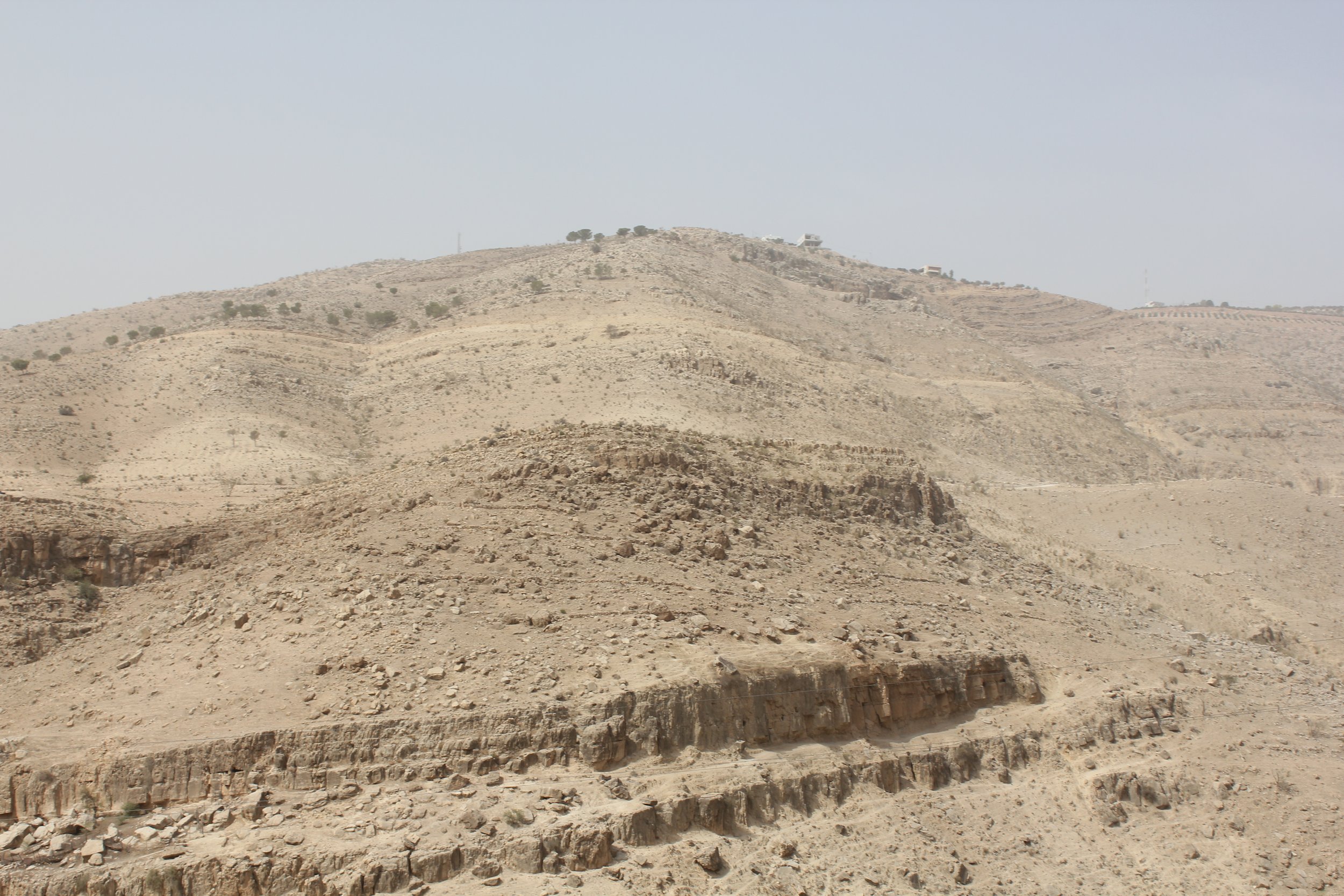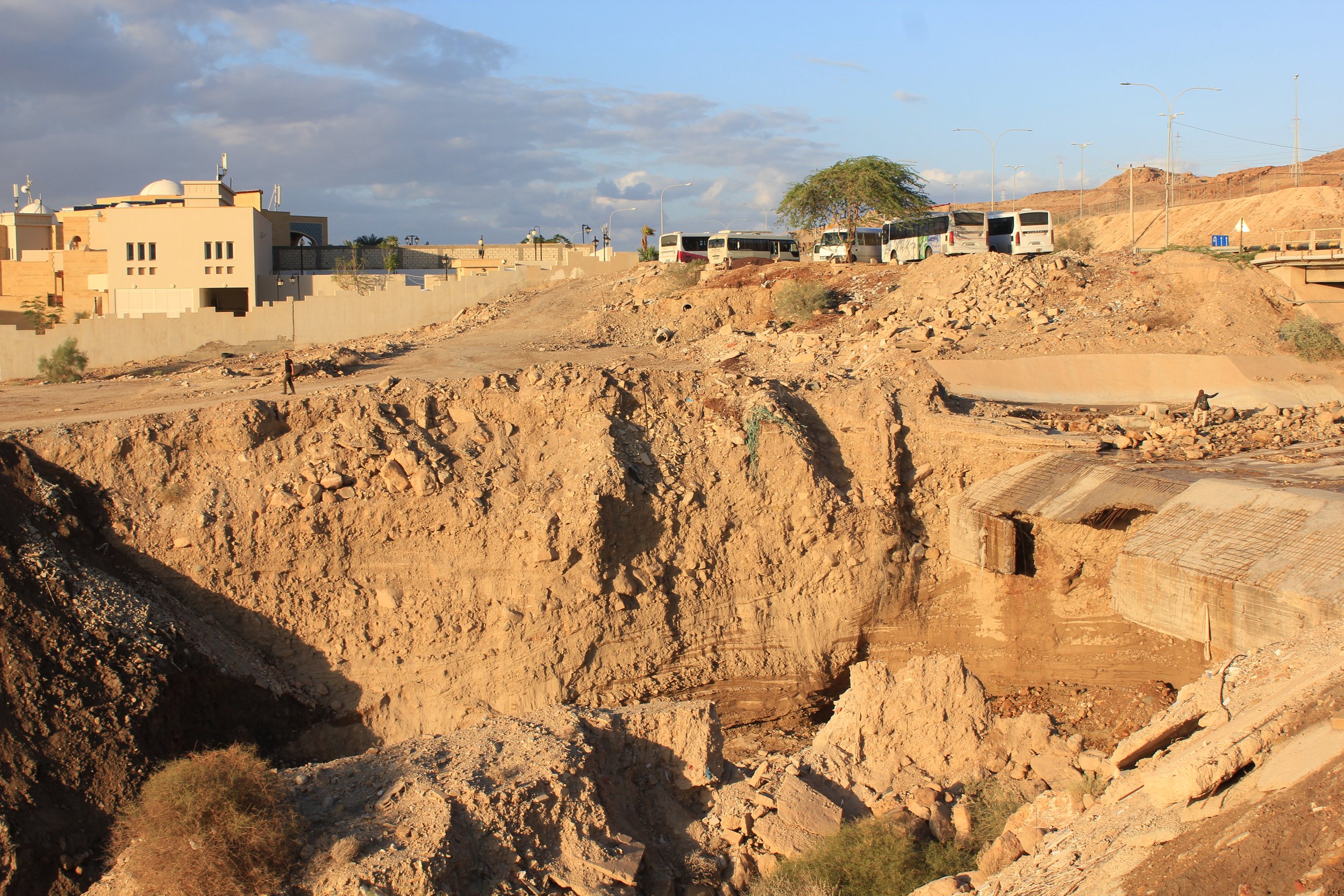‘Greening the Desert’
Permaculture Internship with Geoff and Nadia Lawton, Jordan Valley 2018
In October 2018 Rachel took part in a 6 week internship run by Geoff and Nadia Lawton. The ‘Greening the Desert’ Permaculture site is located in South Shouneh in the Al Jawfa area of Western Jordan. It is 10km north of the Dead Sea Valley and 6 km east of the West Bank, Palestine. The images below show the region's arid landscape, inhabited by traditional Bedouin communities and largely Palestinian refugee, now permanent settlements.
This project gives hope to the region as it demonstrates the ability of permaculture practice to restore and regenerate extreme depleted landscapes.
In the Jordan Valley water is precious, scarce, and expensive. When rainfall does come, due to steep slopes with little to no vegetation, hillsides can collapse. Permaculture starts to repair this landscape by slowing and soaking the water. Trees and species most adapted to the extreme conditions (ie Prosopis juliflora and Leucana) hold the soil and act as initial nurse trees . Fixing nitrogen they provide shade for secondary plantings and aid in the building of soil as they are ‘chopped and dropped’. The spikey Prosopis is also buried in pits (with animal manure) to break downand add fertility to the soil. Phoenix dactylifera (the Majestic Date Palm) will be the eventual canopy tree on the site, providing highly nutritious fruit and much needed dappled shade to more sensitive trees.
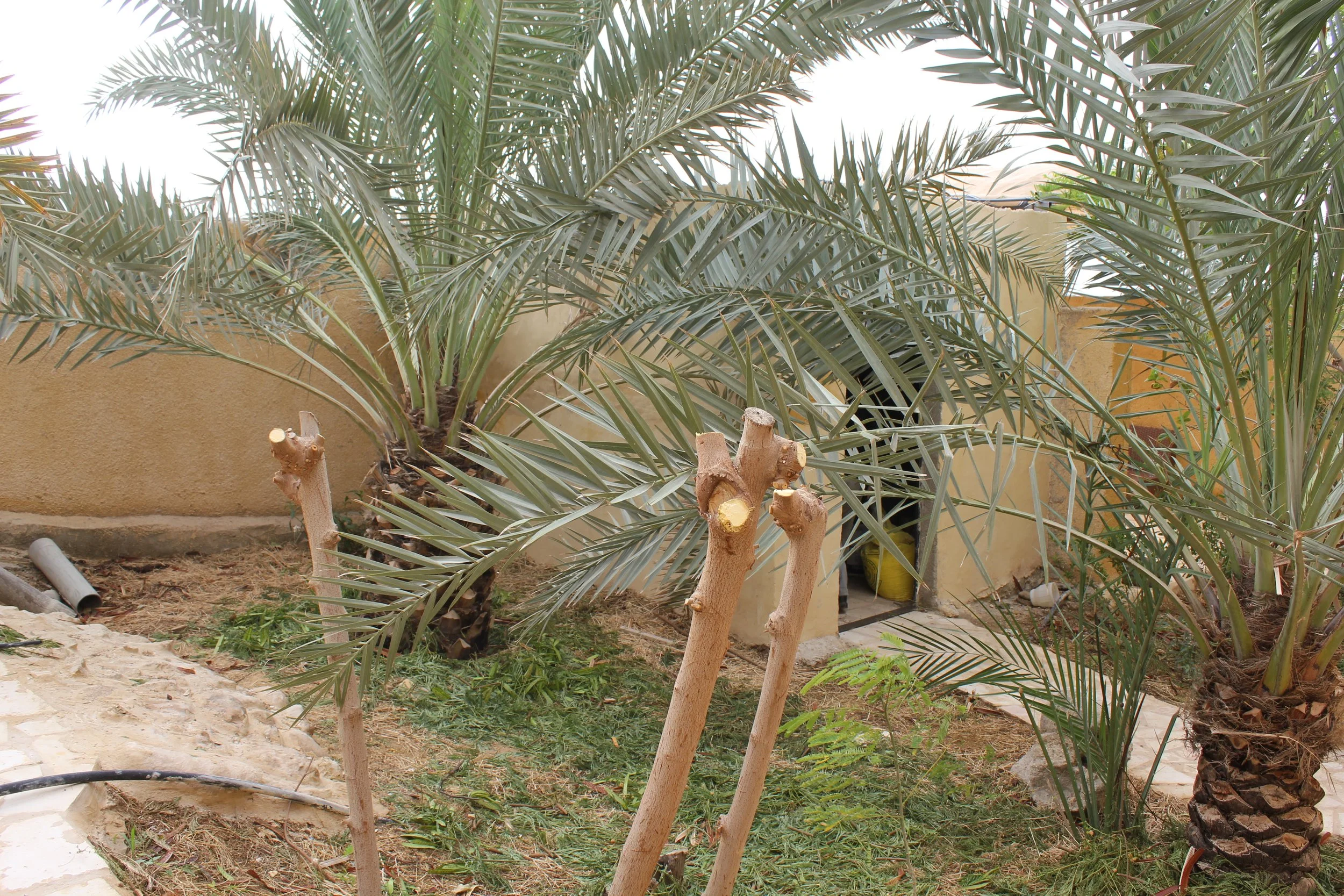
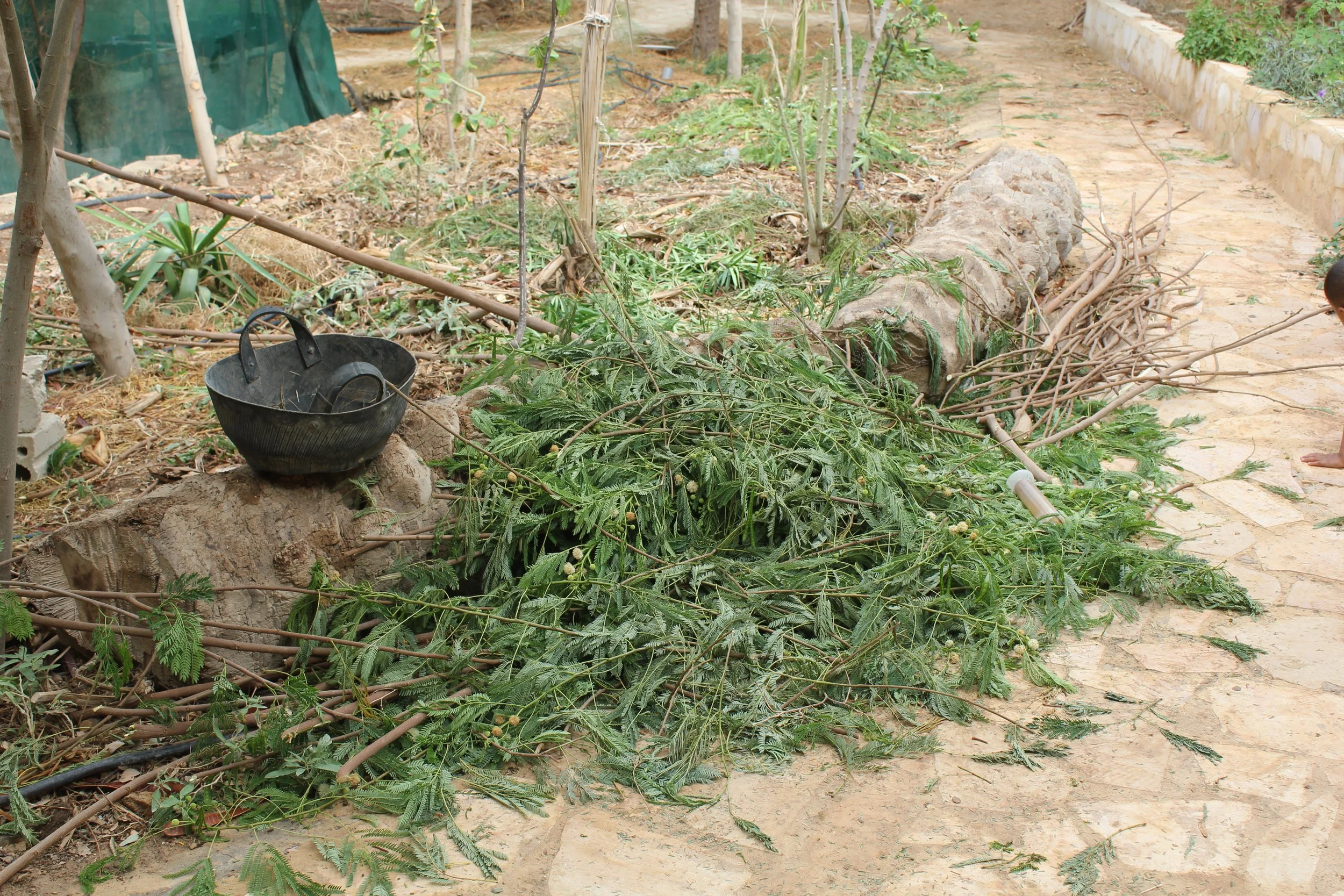
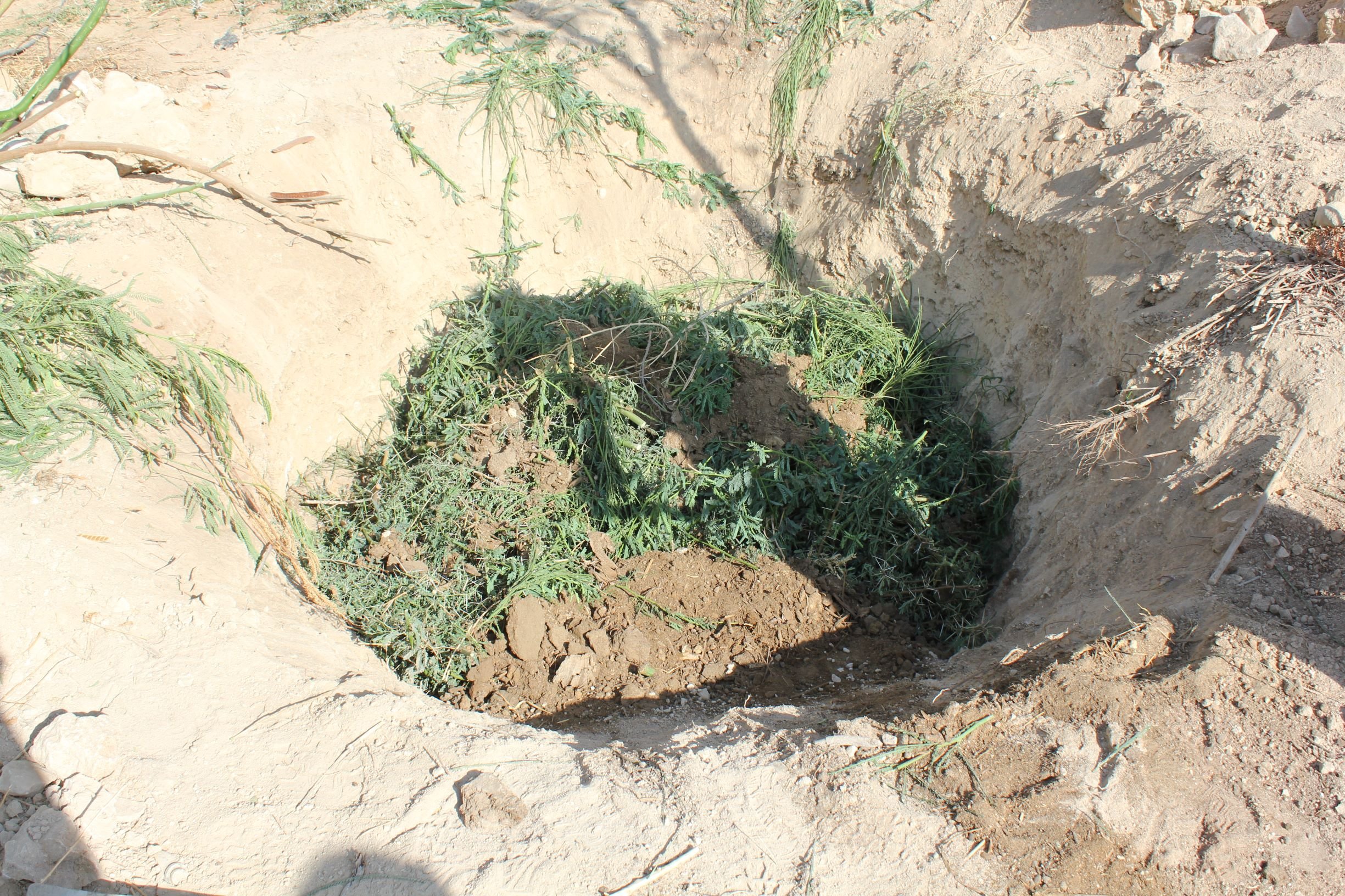
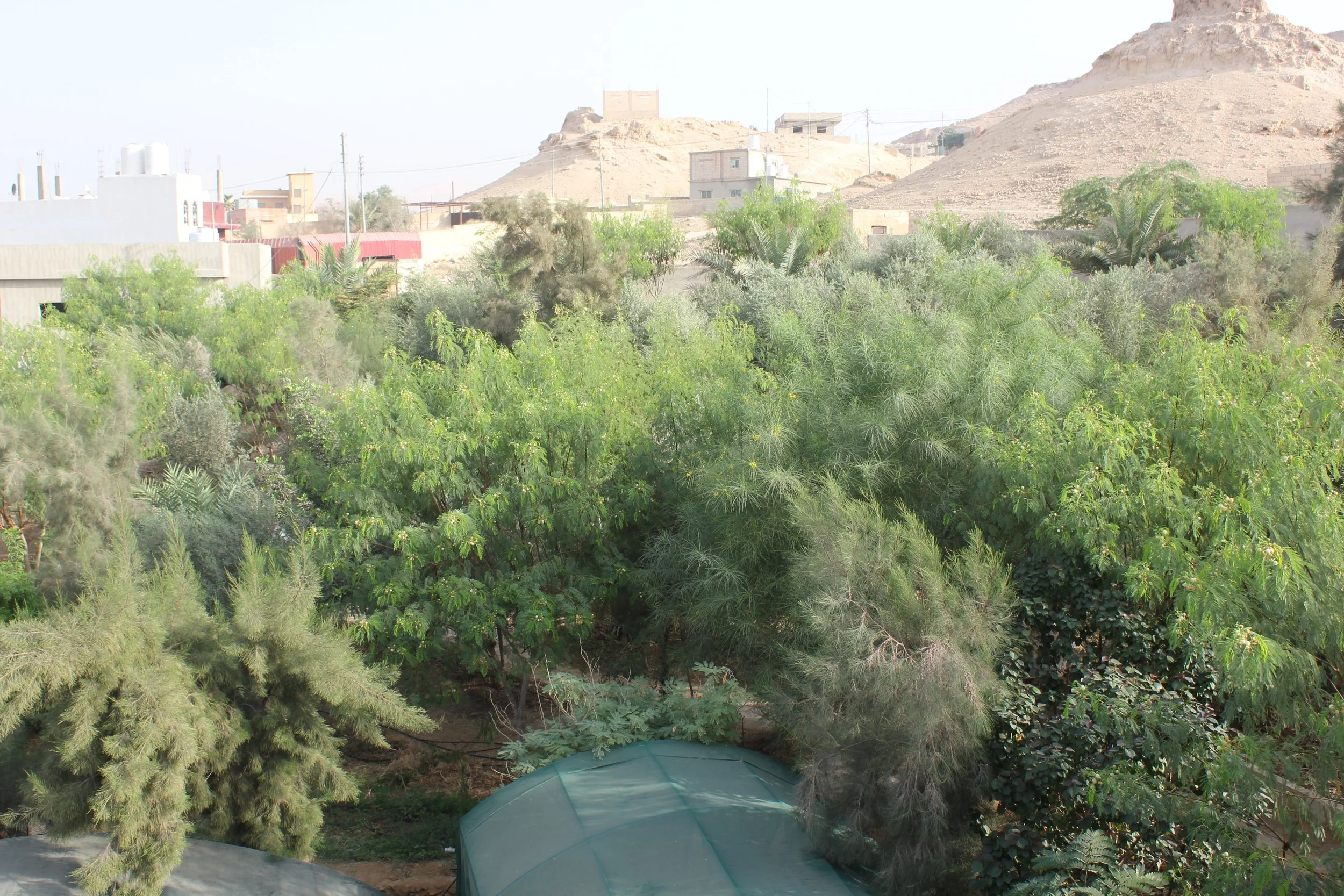
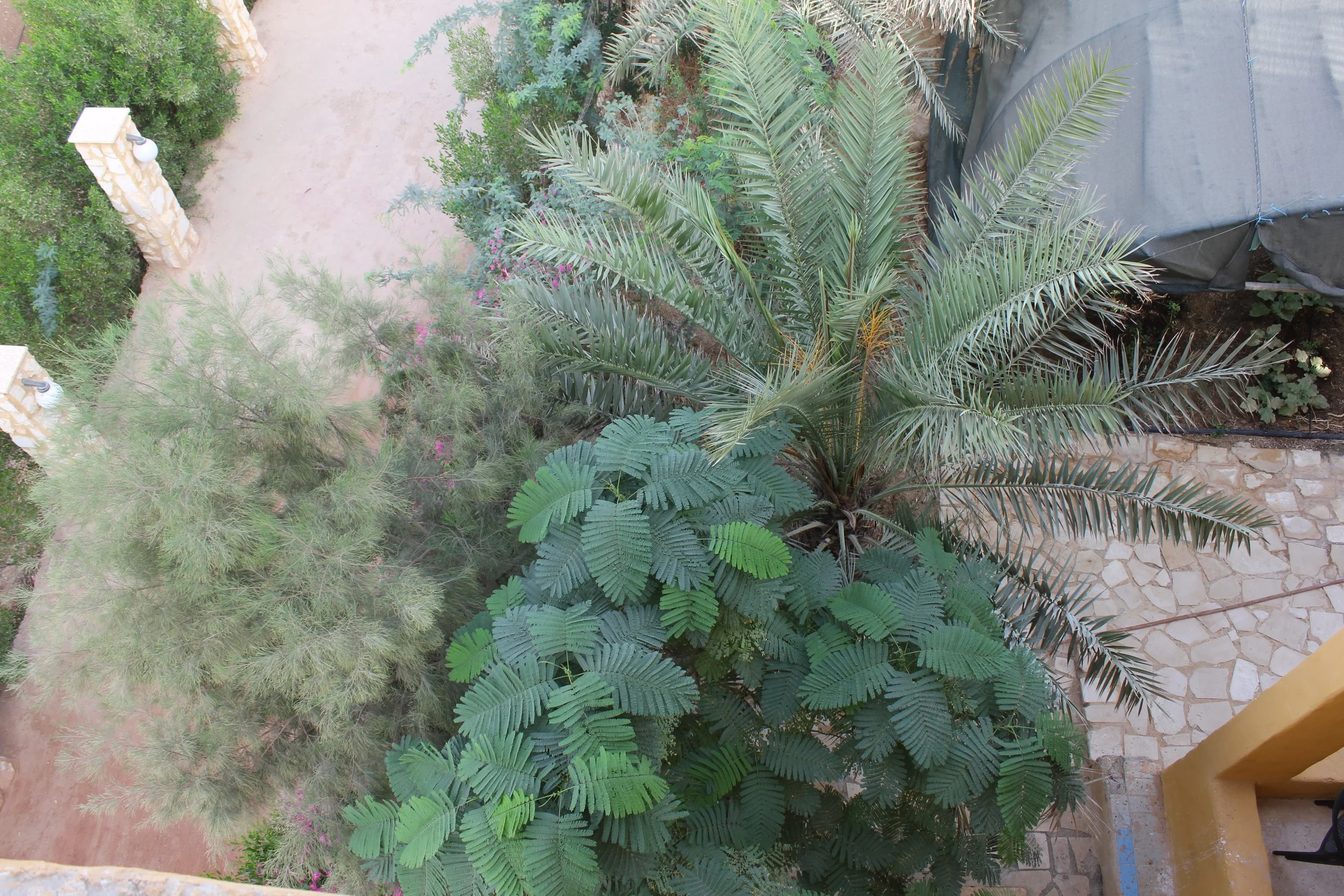

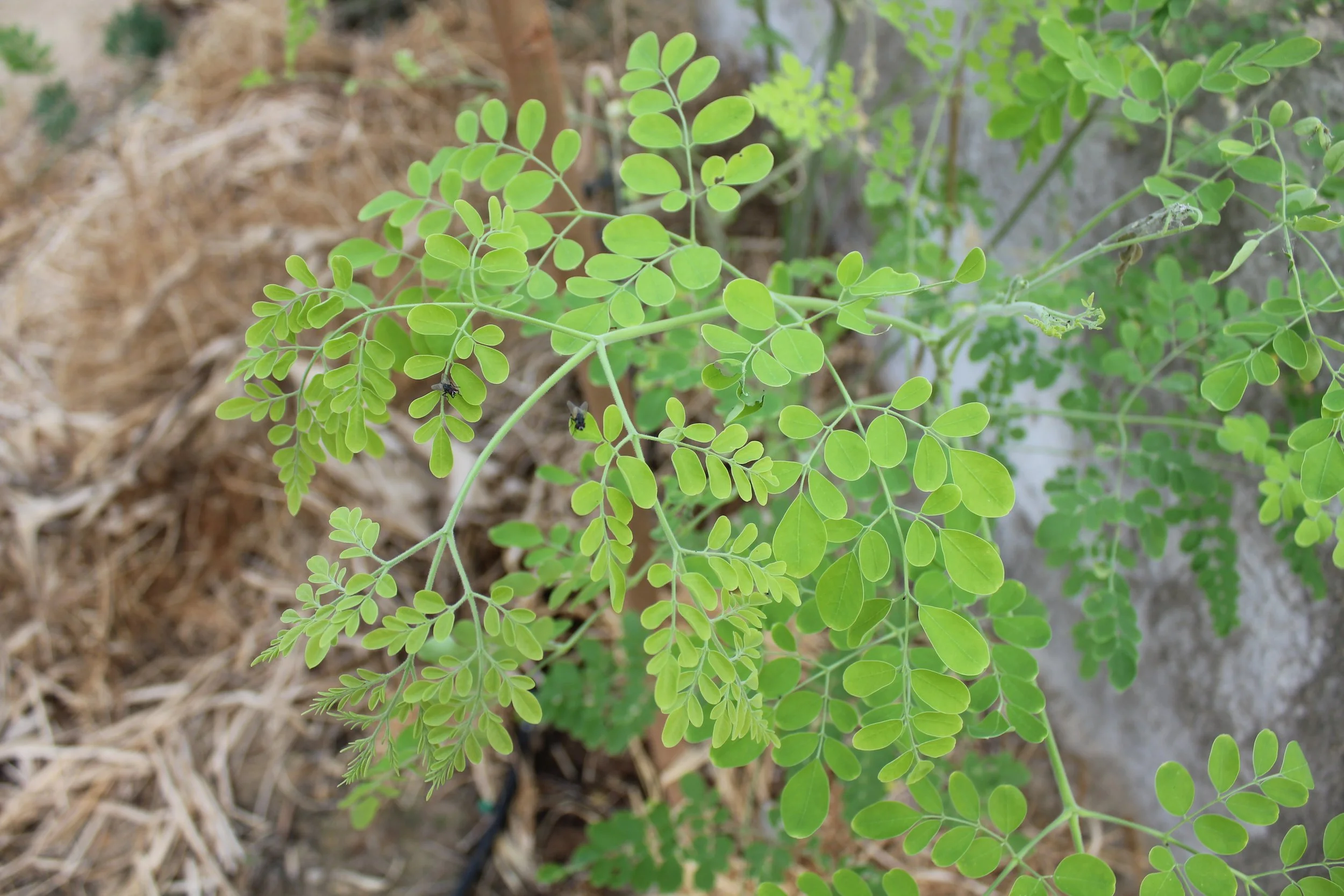
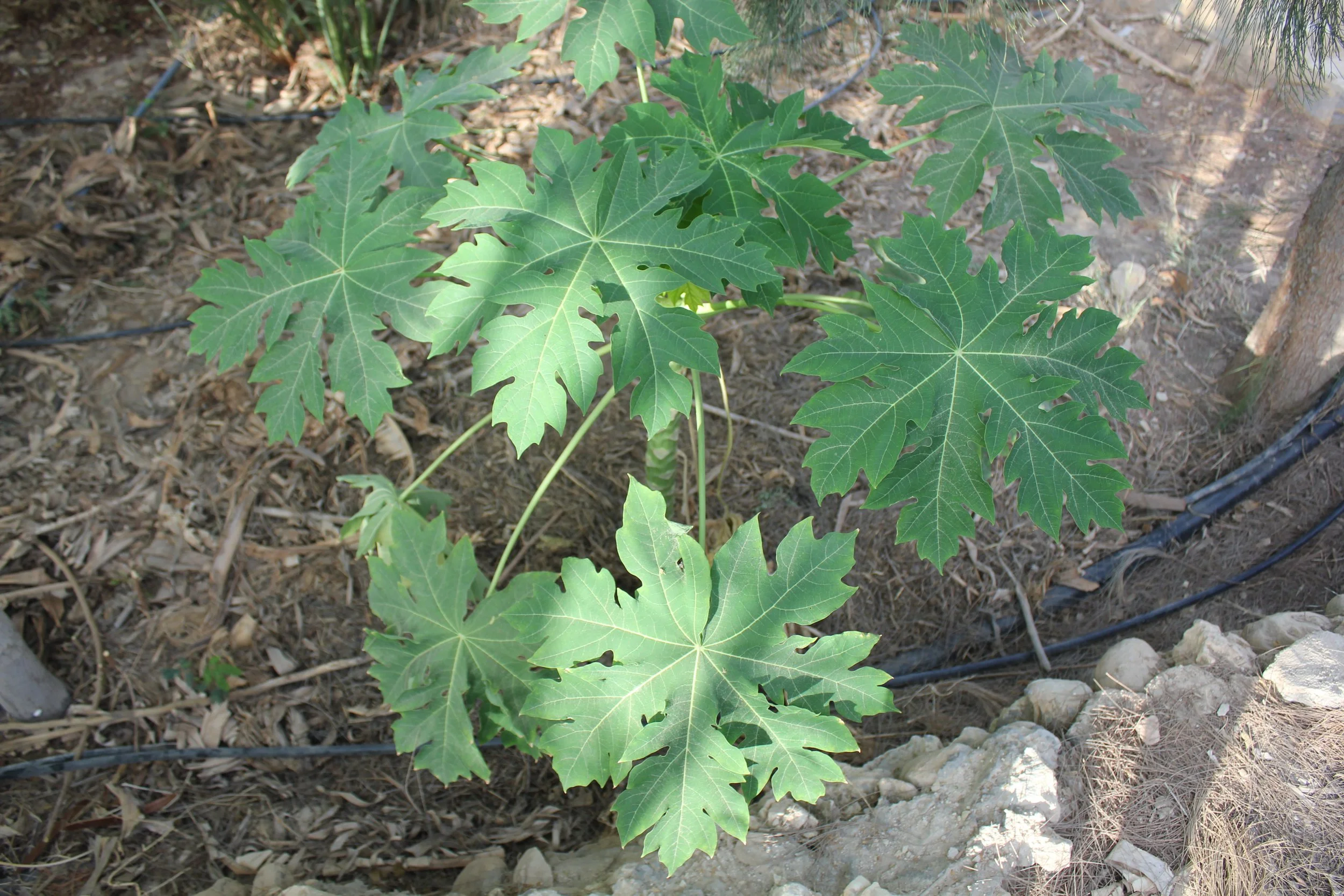
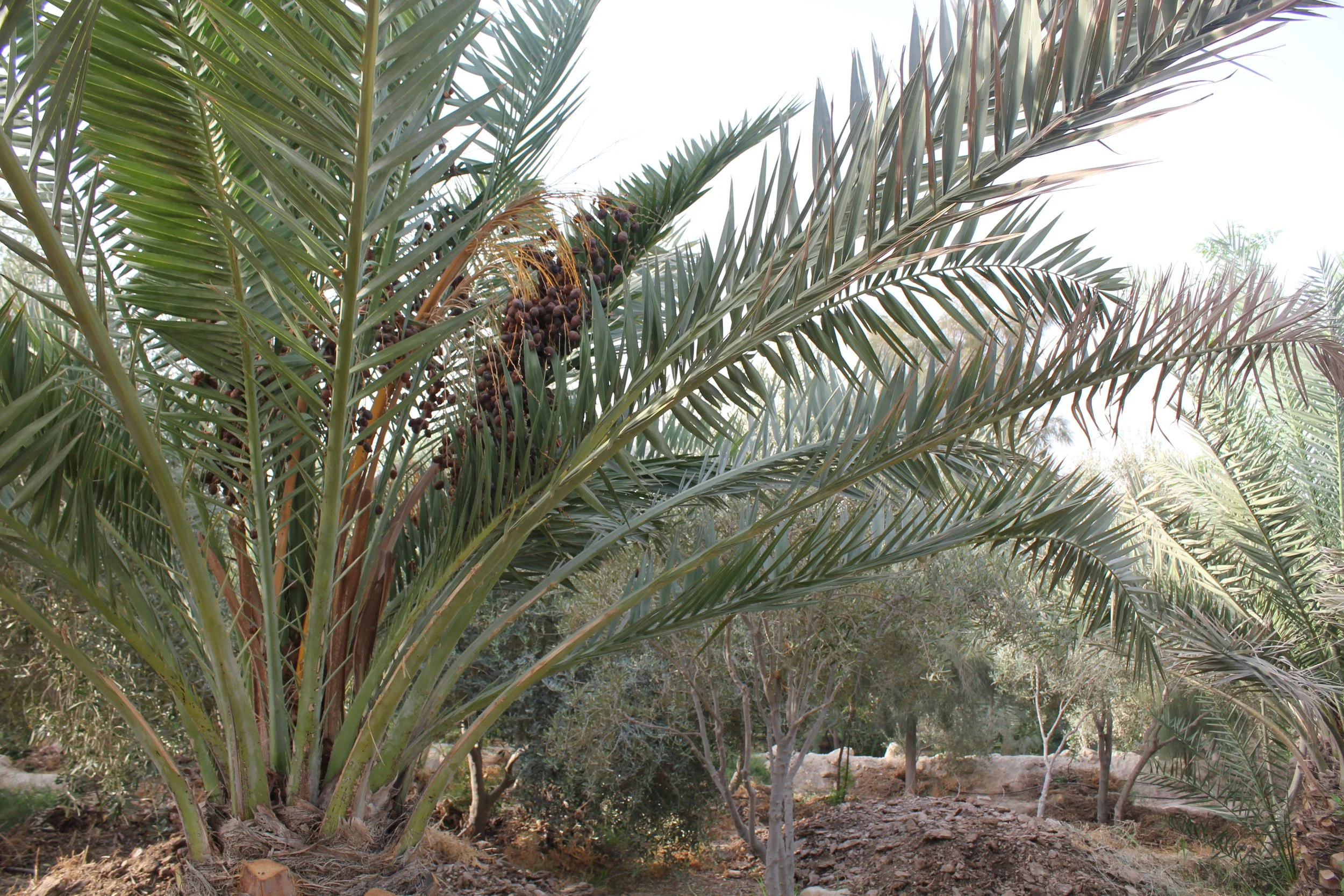
Jordanian Bedouin people’s principal food is from their livestock. Historically all vegetation is grazed but without shade temperatures soar increasing evaporation, creating drought cycles and baking the soil. The project of ‘Greening the Desert’ tries to rebalance this by cycling nutrients back through the system and landscape.
The principal ethics (and goals) of permaculture are: Care for the earth (and biodiversity) Care for people, and Return of surplus. What might have once been seen as waste (manure) is a precious resource. Animal manures mixed with green waste (pruning’s) carbon and food scraps make excellent compost. This compost can be used to establish plants and will help to hold moisture in the soil.
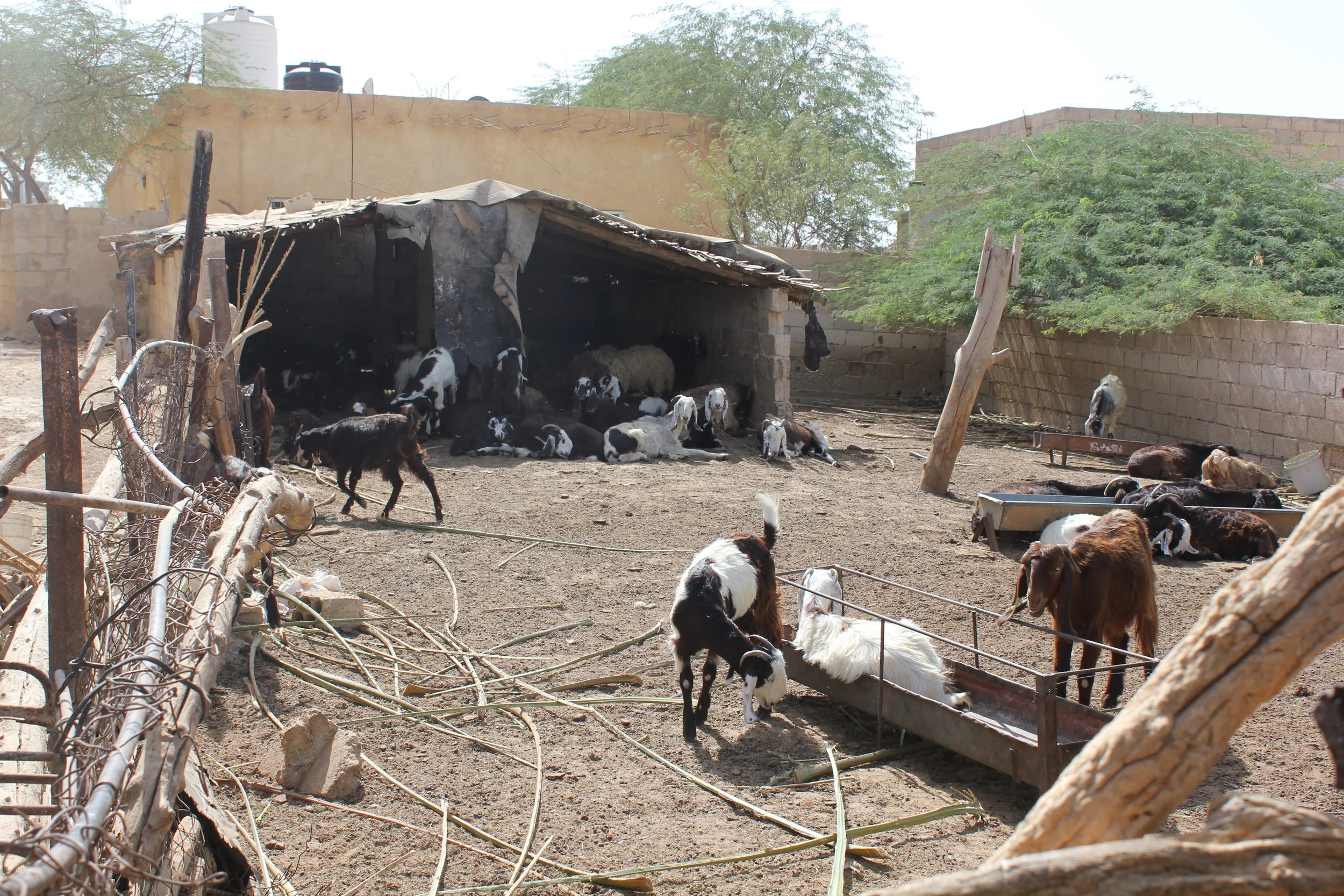


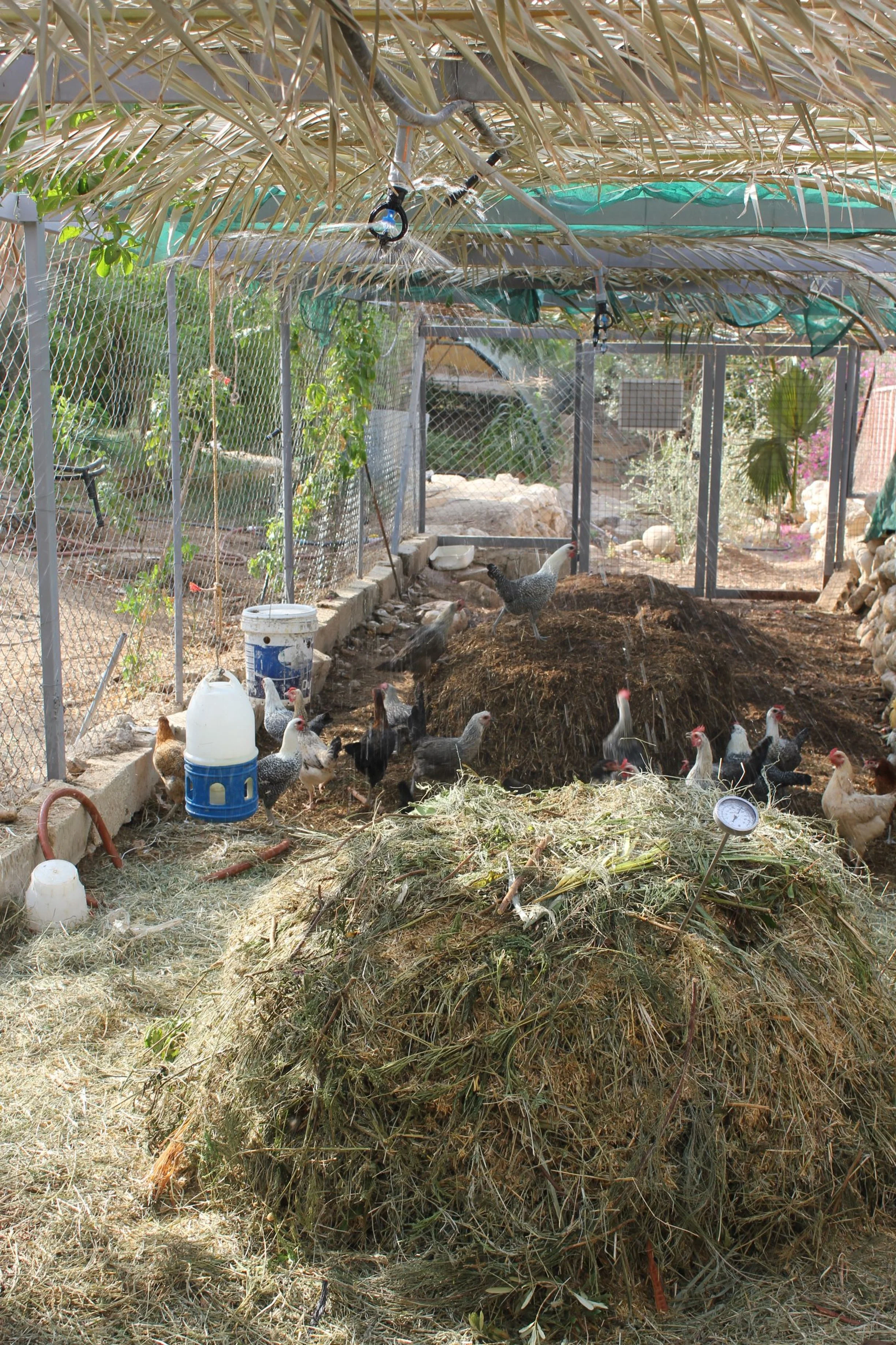

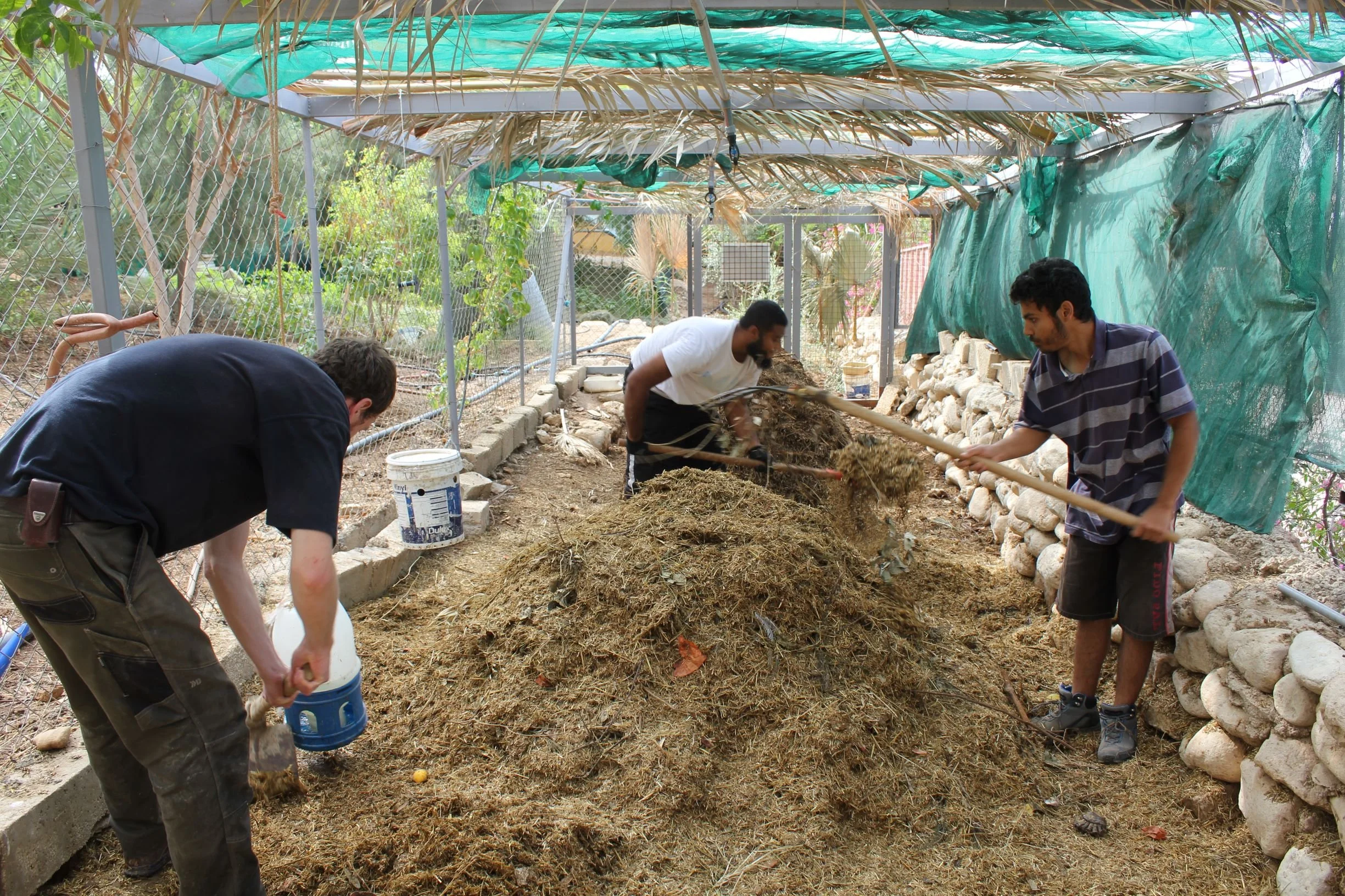
The internship covered many theoretical and practical aspects of establishing and maintaining an abundant site in an arid landscape, including; building soil and soil fertility, collecting seed and propagation, organic vegetable gardening and companion planting, creating shade and microclimates, animal systems (chickens and rabbits) the Berkley method hot compost, irrigation systems (using swales on contour and drip line irrigation) greywater harvest, filtration and use, wicking bed construction. biochar, and compost tea.
Greening the Desert provides support and education to individuals and schools in the region, and worldwide through the Permaculture Research Institute, and through Zaytuna Farm in Australia. For more information go here.
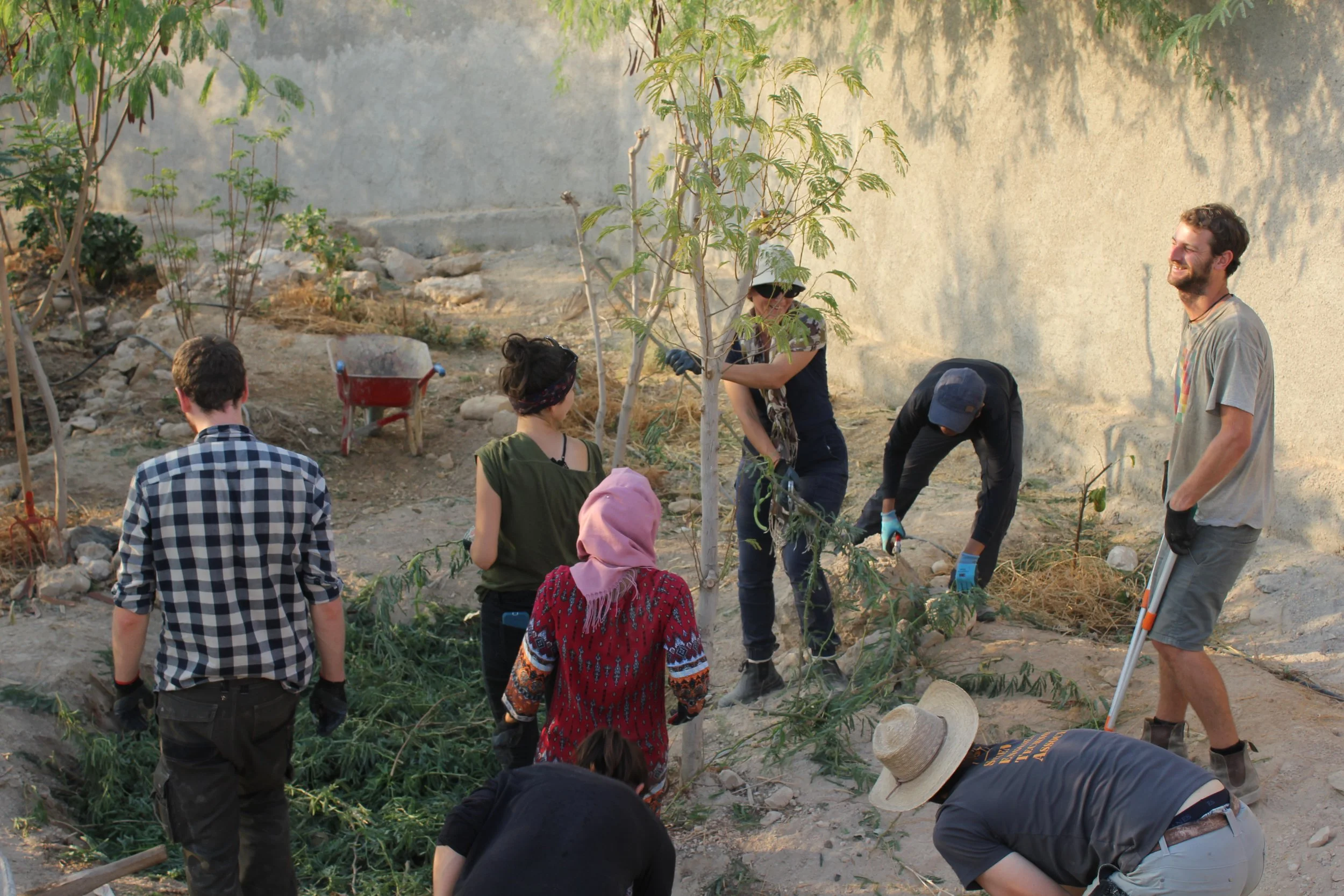
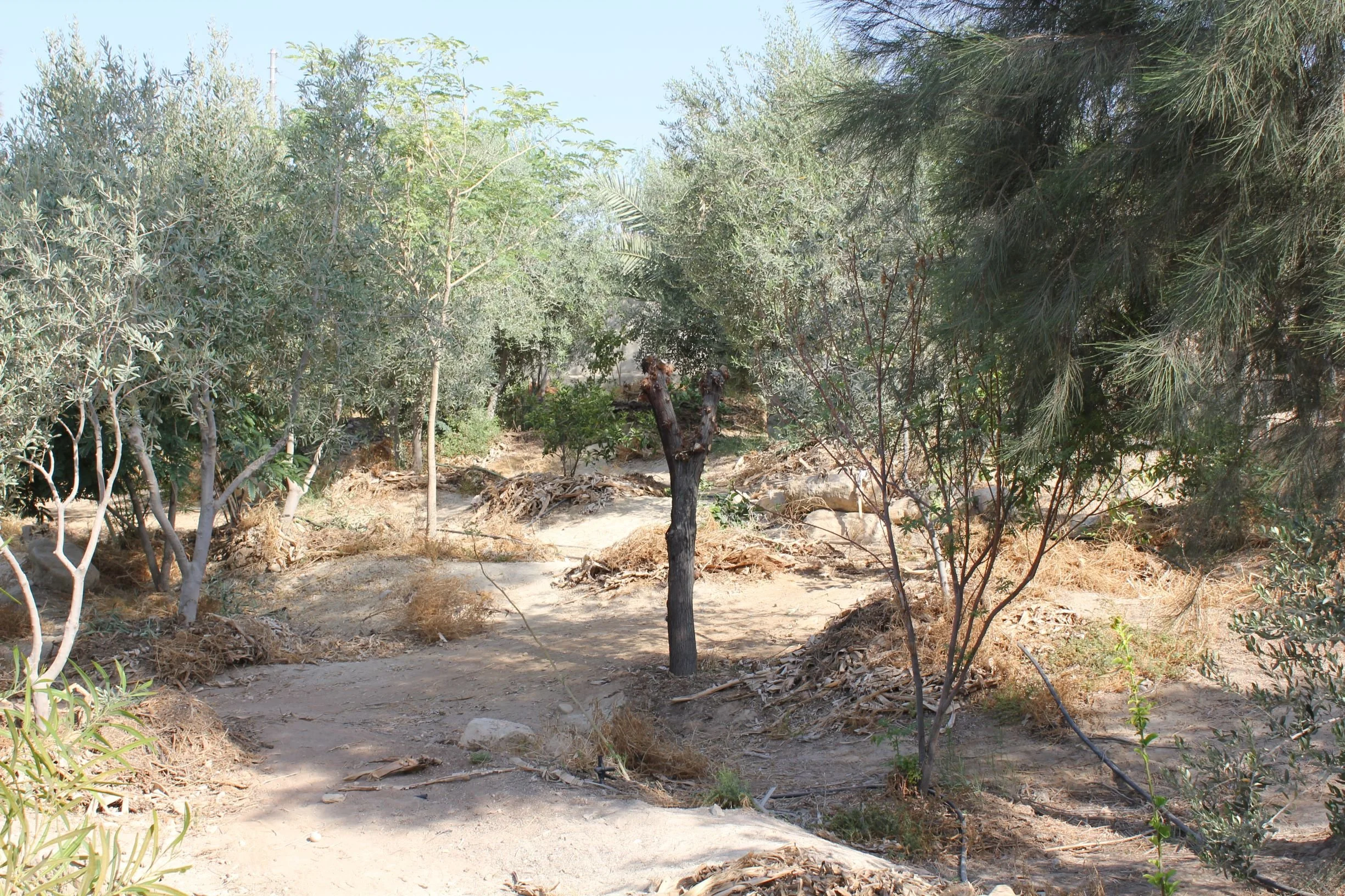
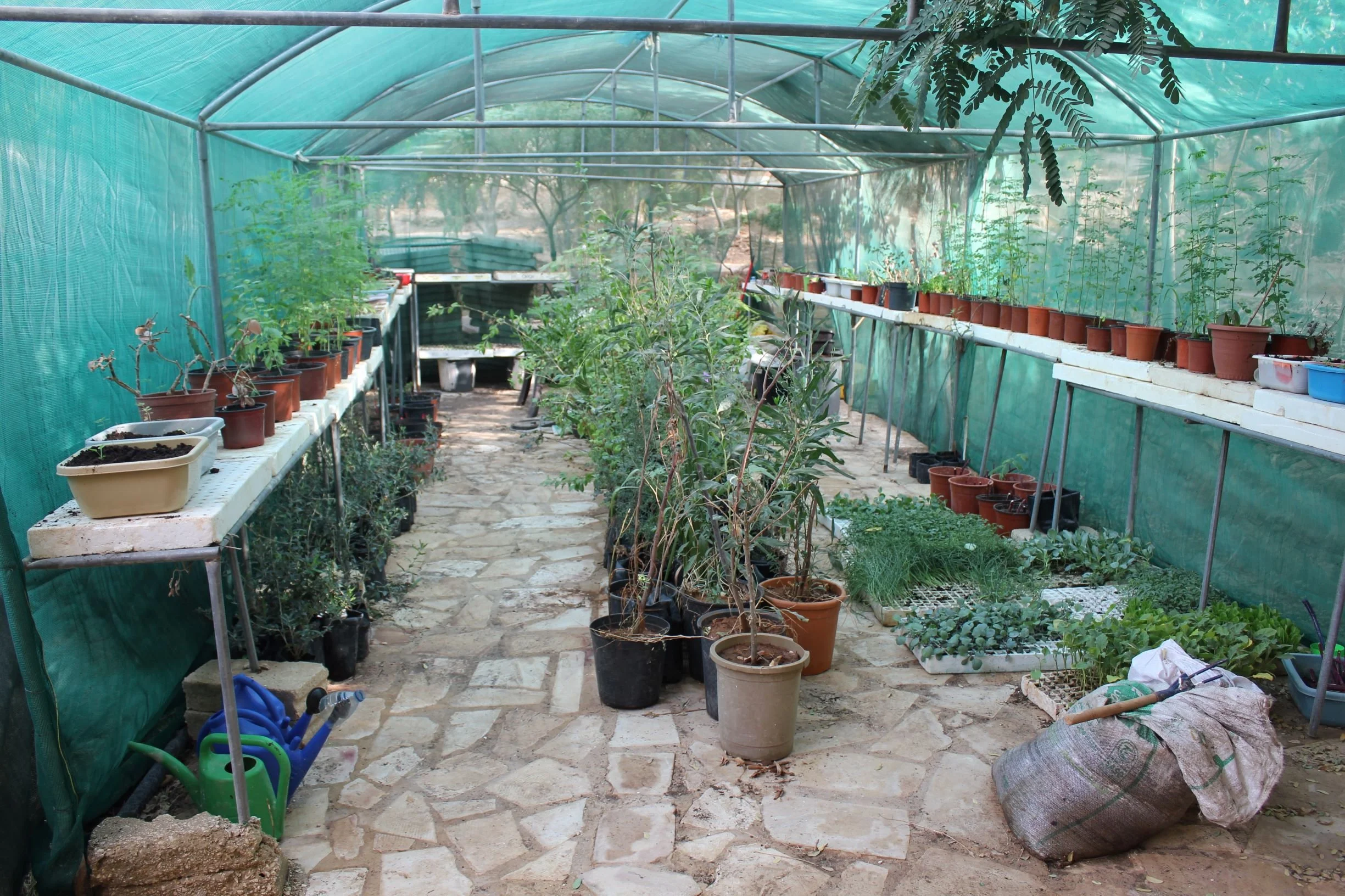
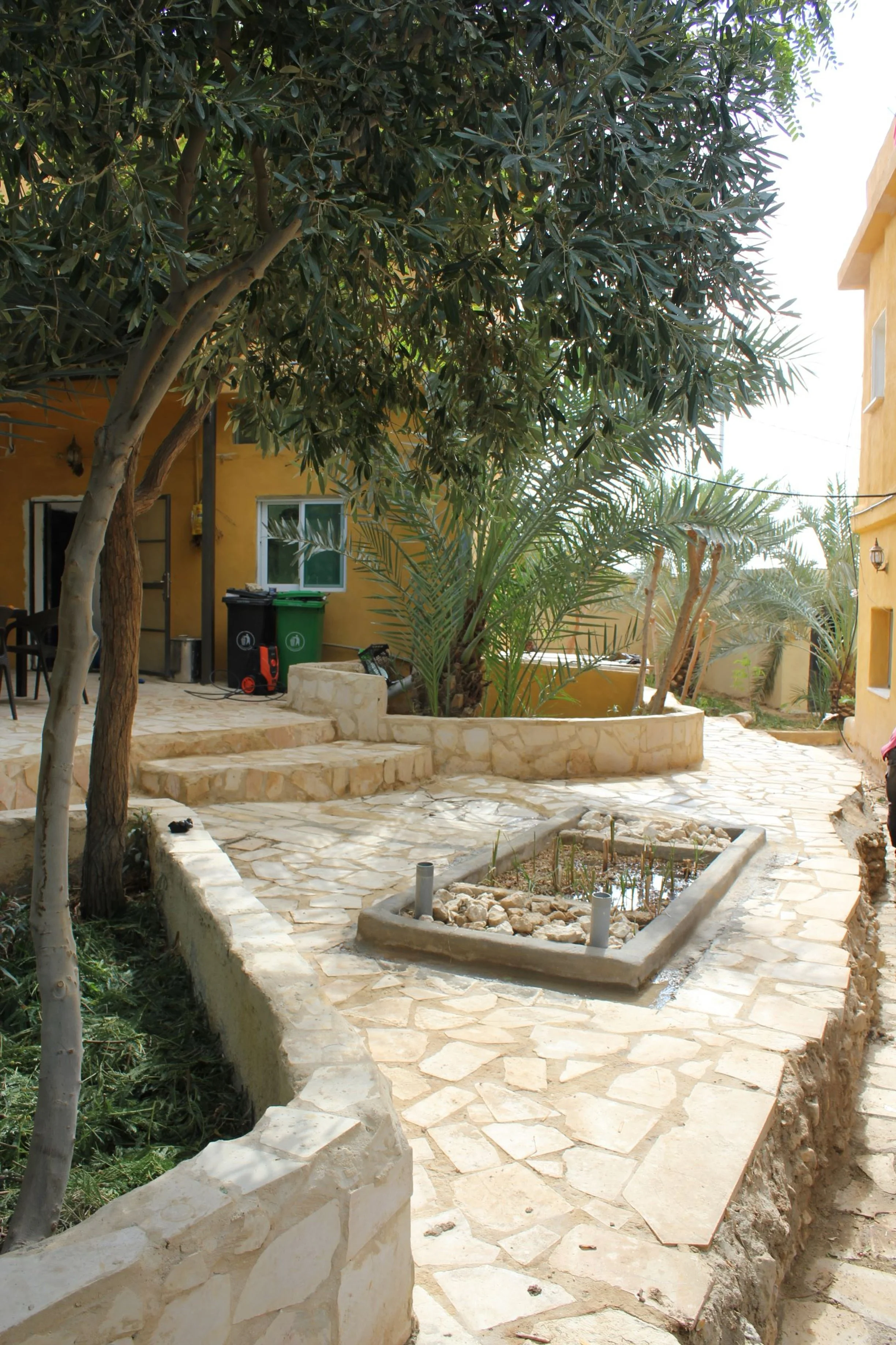
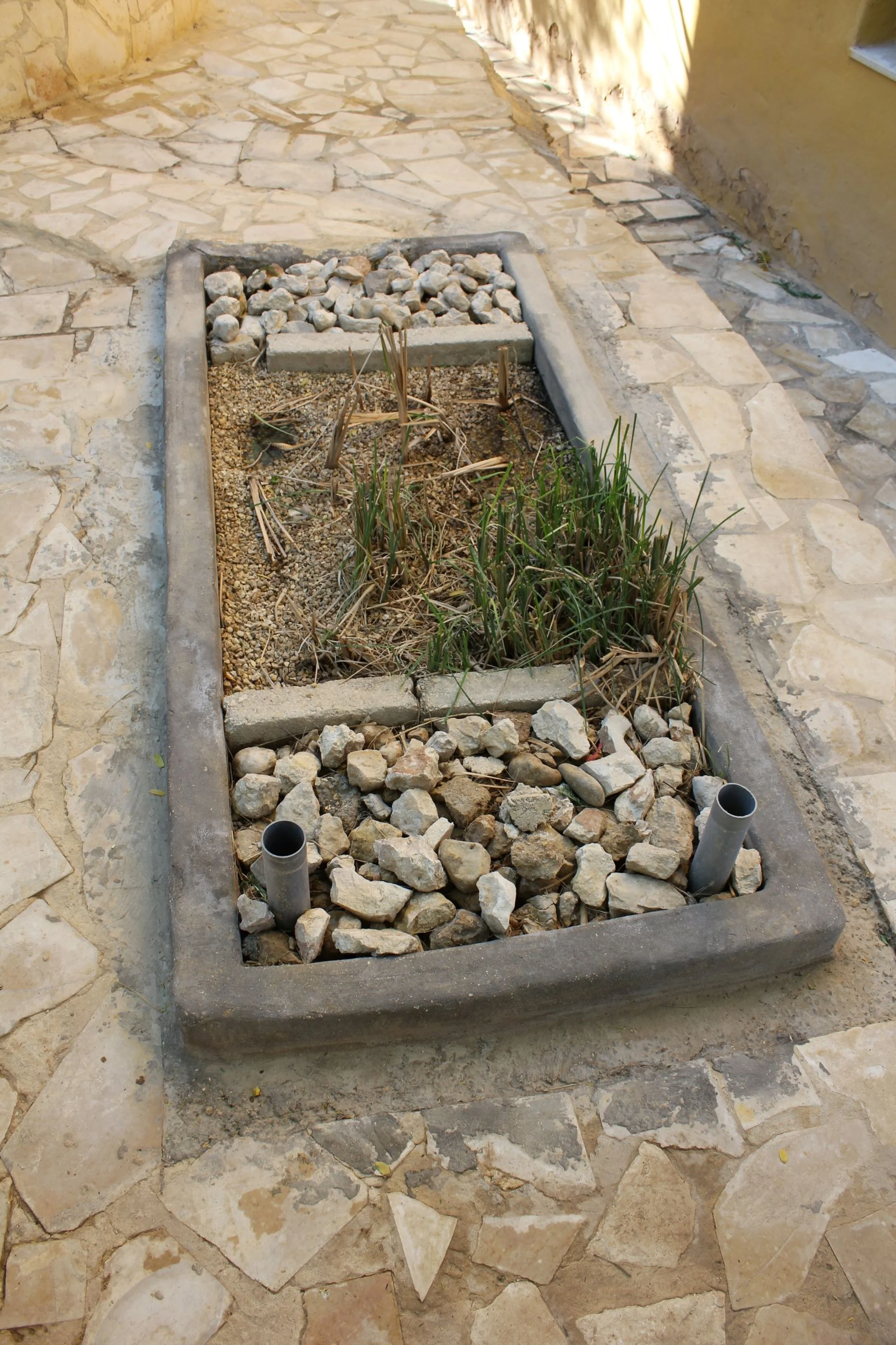
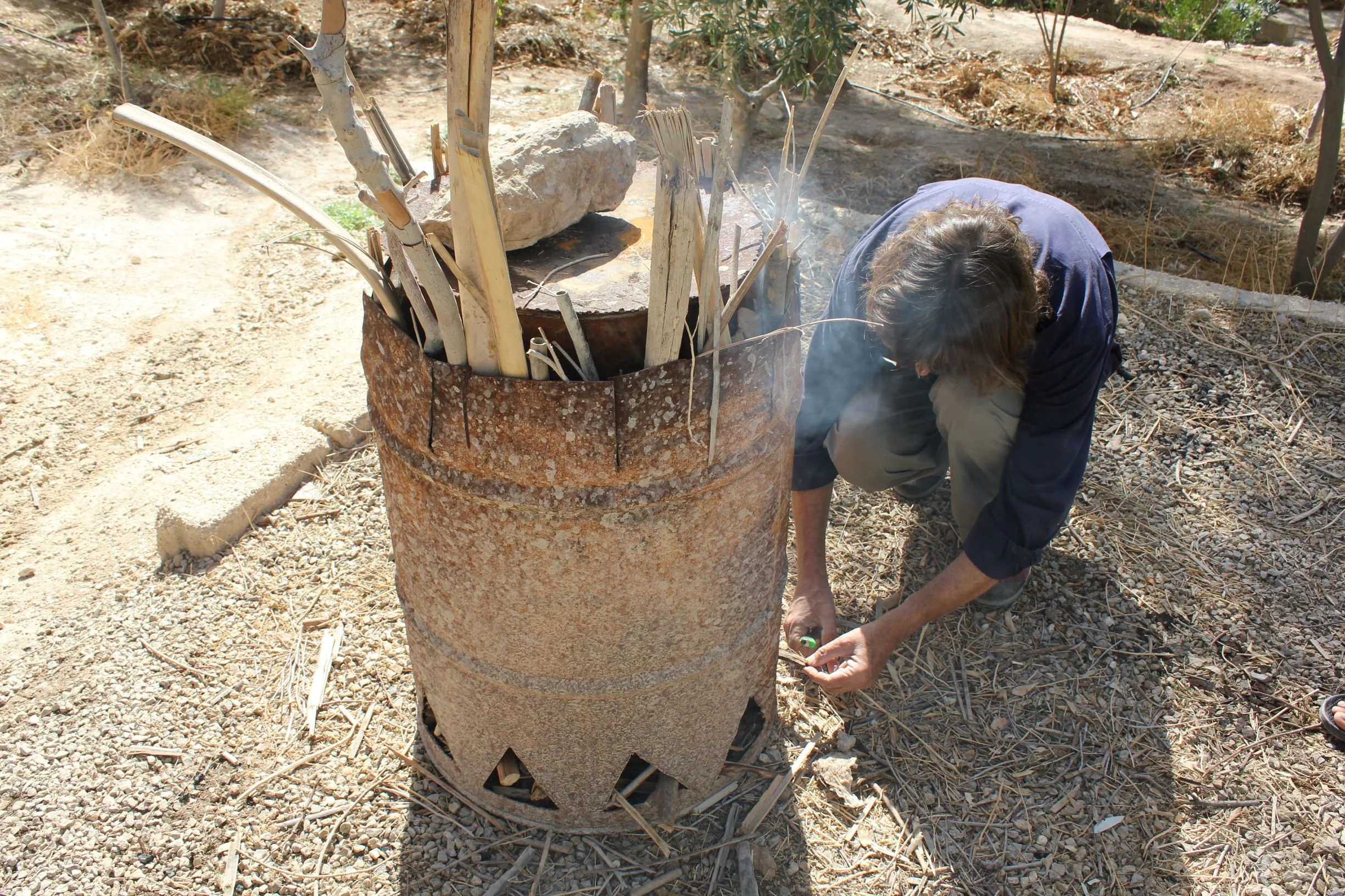
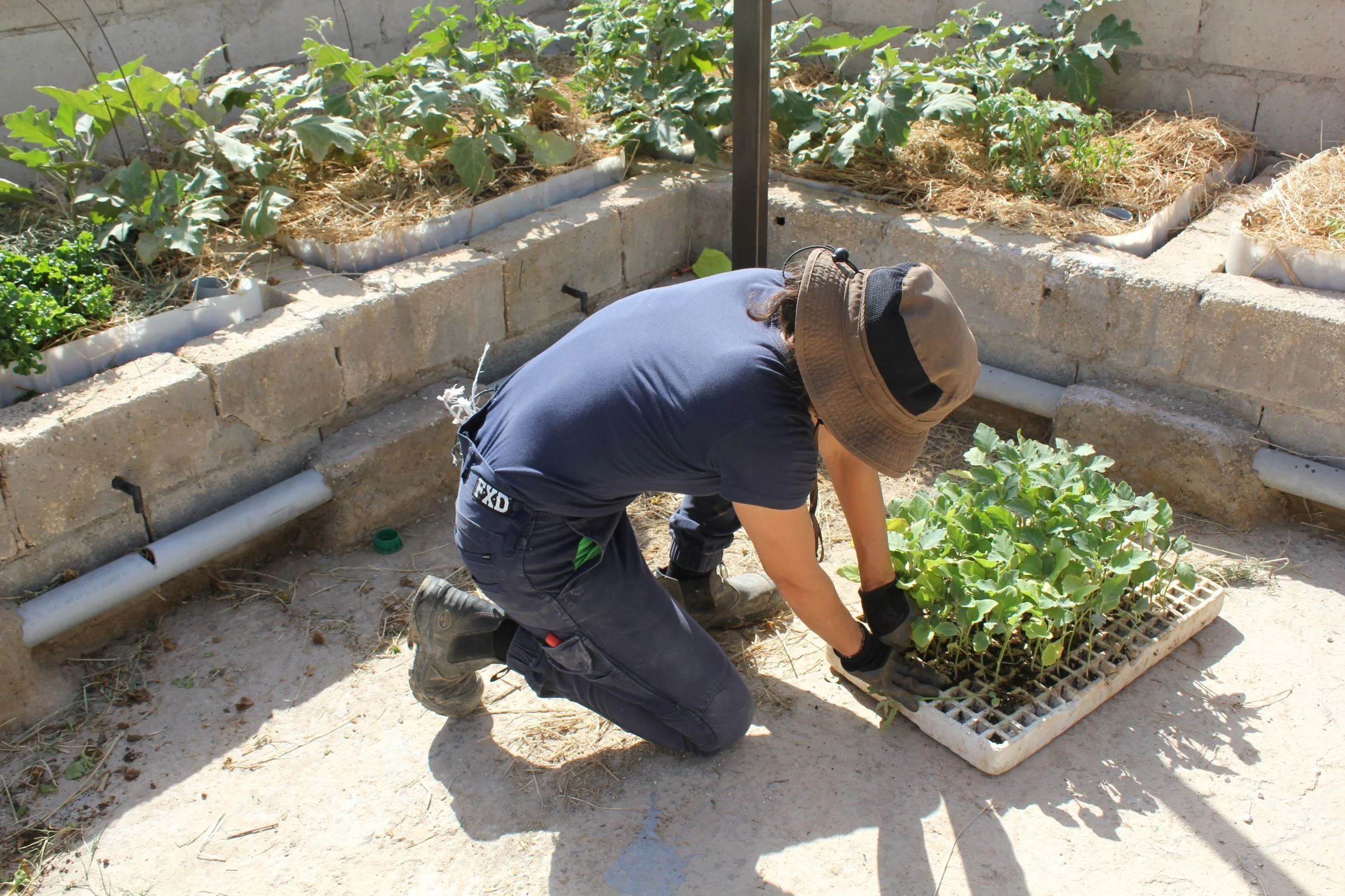
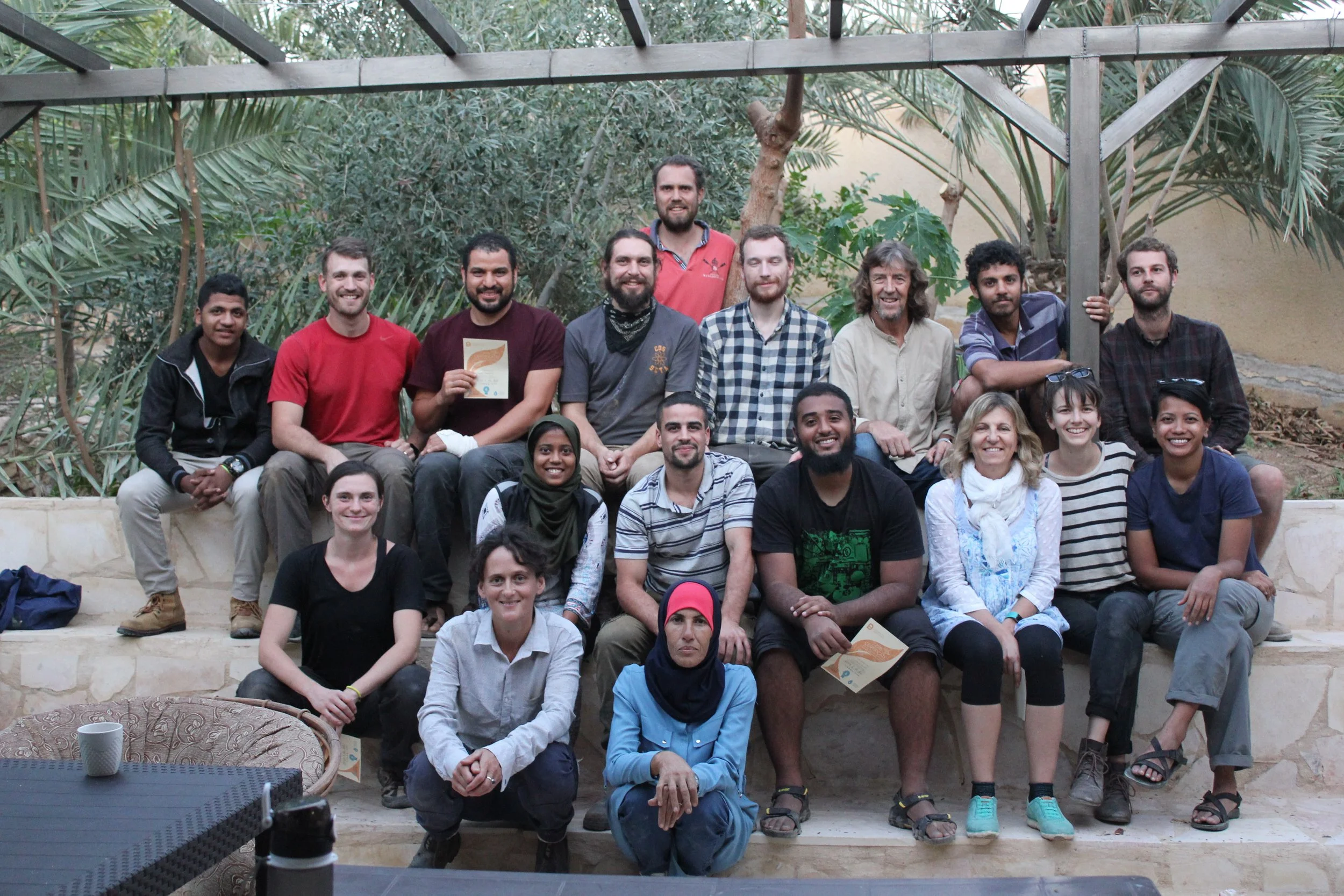
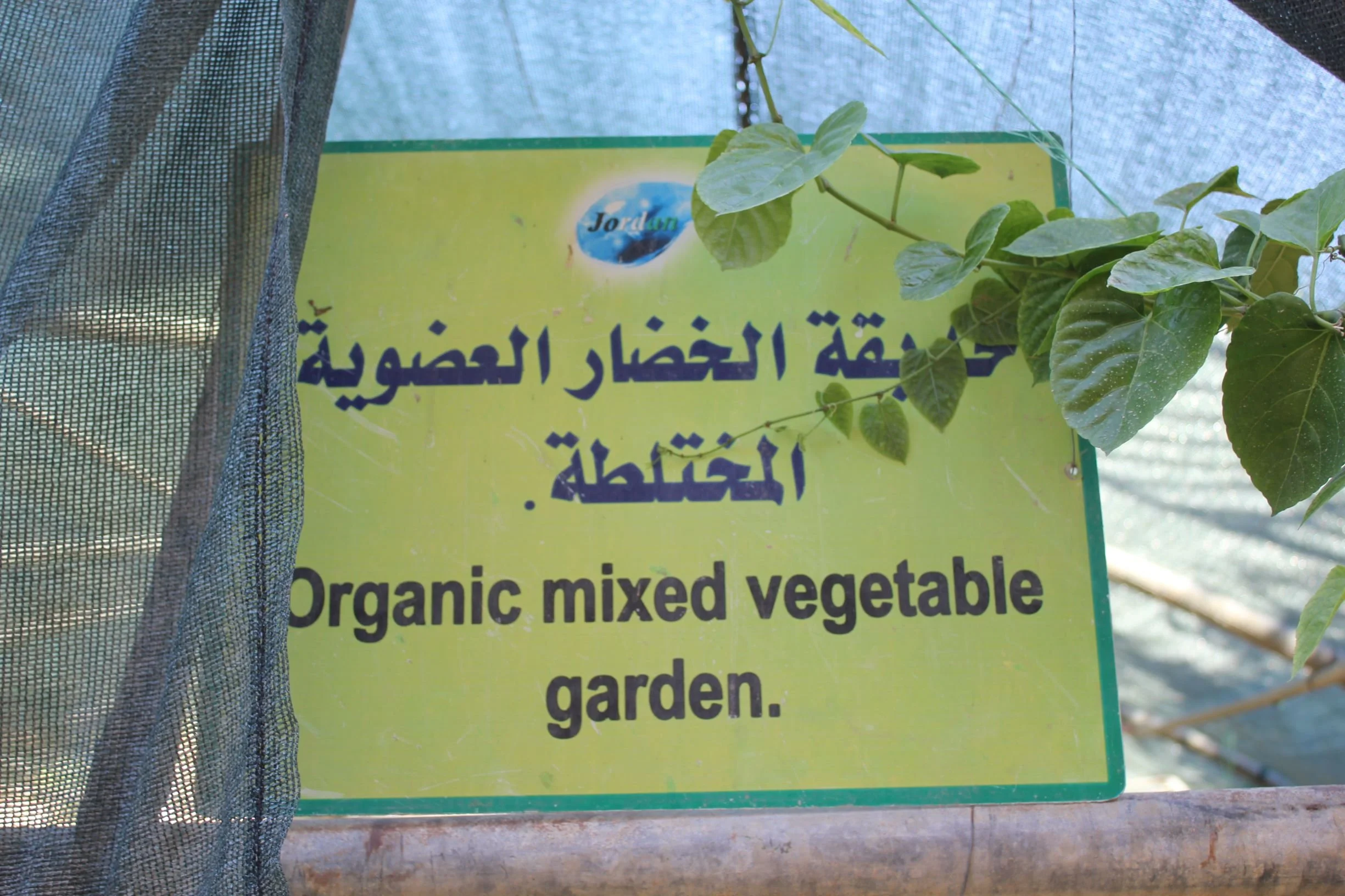
Abla's Garden Oasis - Jordan Valley
While on this internship I met Abla who, in a few years has transformed her 600m2 block, directly opposite the Greening the Desert site, from a slope of bare rock to an abundant paradise. After completing a PDC (Permaculture Design Certificate), with Geoff and Nadia Lawton, Abla put it all into practise. At an achievable scale, with minimal funds, tireless labour, and a lot of love there can be no better example in this harsh environment than what Abla has achieved. Building a small home, catching rainwater, planting a food forest and keeping chickens, it is a total oasis. Photo at right is of Abla is with her grandchildren.
See a wonderful talk and tour Abla gives of her garden here (made by Geoff and Nadia Lawton and the Permaculture Research Institute).
A force of nature Abla is Palestinian, from the town of Hebron. Her family were made refugees and though the border is only 6km away, they are still unable to return. Previously a schoolteacher in the capital Amman, Abla now teaches groups, especially women throughout Jordan how to make hot compost, following the 18 day Berkley method. An essential to growing organic food crops.
During my internship Abla made 16m of hot compost (almost singlehandedly flipping these pile every 2 days), some small help was provided by the 2018 interns. It was an amazing experience to see this bulk of raw materials, previously considered waste, being recycled into such high quality compost. Many people (certainly myself in New Zealand and Australia) take for granted access to excess biomass or, indeed readily available finished soil amendments (compost, soil conditioners etc). In this harsh dry environment such things are extremely rare, if unheard of.
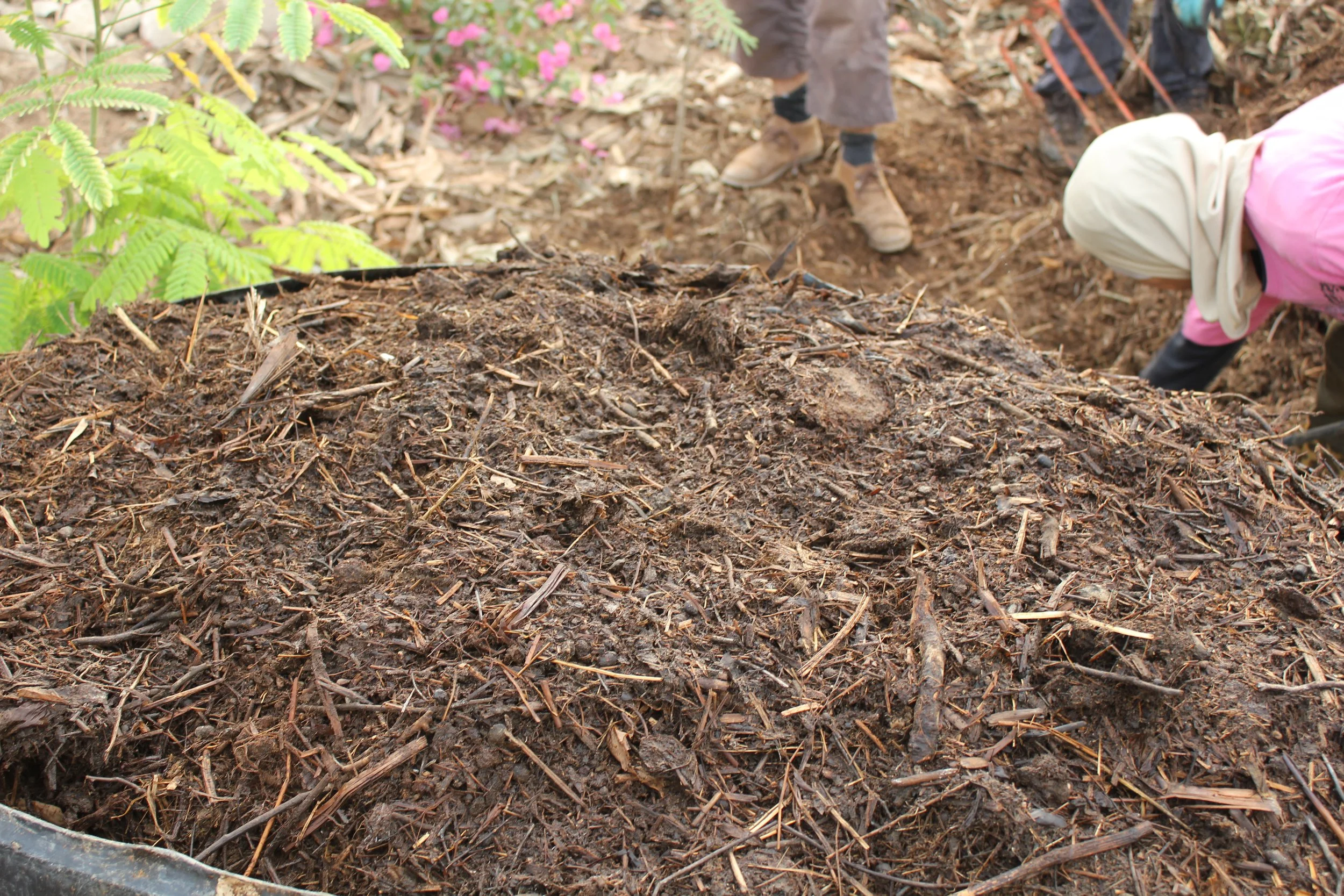




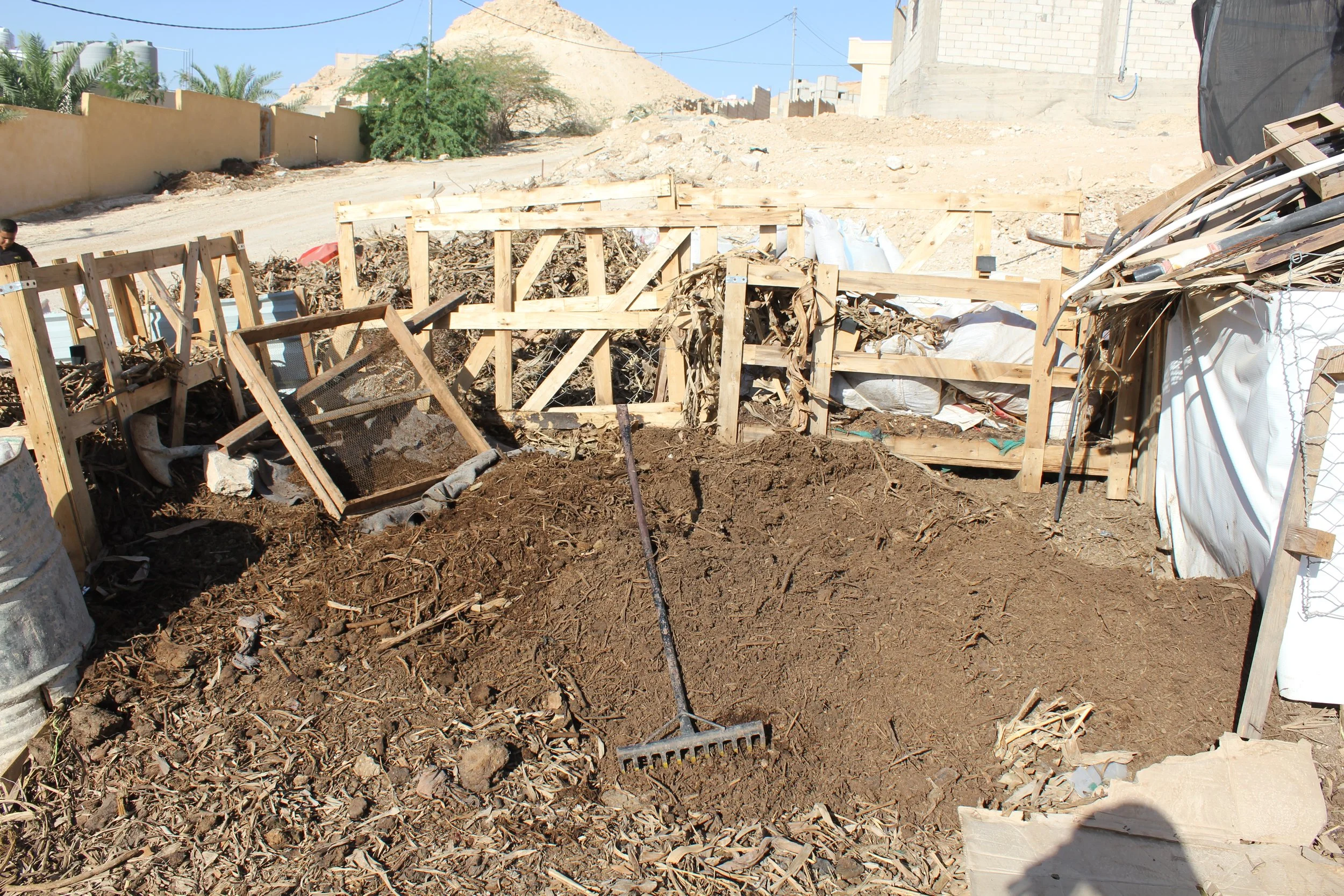
The sale of the compost helped fund a much needed gabion wall to protect Abla’s garden from ranging animals, and worse, falling rocks and flood waters from neighbouring properties. In the rare, but extreme, rain events rocks are dislodged as there is no soil or tree roots to hold them in place.
Intelligent, charismatic and funny Abla was a bridge between the interns and local community, often translating for us, organising and accompanying us on local trips, and helping us to meet neighbours and to buy their produce. Abla is a huge inspiration for what she has done, and continues to do, both on her own property and through spreading the practical application of permaculture, empowering local people, especially women. Thank you Abla. To see a recent update of Ablas garden (also from Geoff Lawton and the Permaculture Research Institute) see here.


